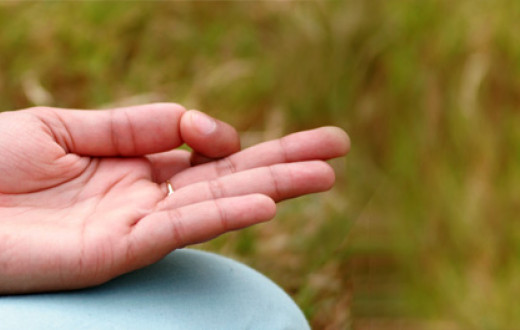By Phillip Miner | Posted: May 02, 2018
We all make mistakes. Errors are a part of life; there’s a reason why a famous quote by Alexander Pope begins with the phrase “to err is human.” The full quote reads, “to err is human, to forgive divine,” and H. H. Gurudev Sri Sri Ravi Shankar of Art of Living has explained further just how forgiveness of others is divine, and why we should do it.
Often, the harshest critique of ourselves can come not from others, but from within. Sometimes we beat ourselves up for our mistakes over and over again. Forgiving ourselves can become the hardest thing we can imagine. However, as Gurudev Sri Sri Ravi Shankar often says, forgiveness is not only for the other person’s benefit, but our own, as forgiveness allows us to move on from the incident and get on with our lives. This makes it doubly important that we learn to forgive ourselves, so we don’t get stuck in the same patterns and behavior. Below are five helpful ways you can learn to forgive yourself for your mistakes, and move on so you can truly better yourself.
1. Ask yourself if guilt or self-punishment is really going to help.
This is perhaps the most important thing to learn if you want to practice self-compassion and move on from your mistakes. Guilt and self-punishment may feel understandable, even justifiable at times, but ask yourself if it will really help you. Will it prevent you from making the same mistake in the future? Will it help you become a better person? It may seem like it will in the short term, but the long-term effects of guilt outweigh the short term benefits. There has been research to prove that self-forgiveness is more effective in improving yourself than lingering on guilt.
2. Think of how your guilt will affect others around you.
As counterintuitive as this may sound, feeling guilty may actually negatively affect the people around you. We often confuse feelings of guilt with actual penance, and when we’re feeling guilty, it can change how we act around others, often for the worse. Misery loves company, choosing to feel miserable out of guilt can make you more critical, more withdrawn, and generally more unpleasant to be around, hurting your loved ones in the process. Ask yourself if your guilt is genuinely helping those around you. Odds are, it’s not.
3. Realize that the past can’t be changed.
This is often something people get hung up on, because people are naturally solution-inclined, so wanting to have a time machine to go back and undo whatever it is you’ve done can often be a source of anguish. However, the flip side of this desire is that we cannot predict the future. How do we know that whatever we did is actually the worst-case scenario, and that something else even more painful would not have happened if we went back and “fixed” what we have done? The answer is we honestly don’t know. While this may seem like an excuse to never reflect on our actions, the point here is not to give ourselves a blanket excuse to do what we want, but to remind ourselves that our lives are filled with both pleasant and unpleasant experiences, and to accept them accordingly.
4. Think of what you could’ve done differently, as opposed to should’ve done.
The important thing to take away from your past mistakes is not guilt, but perspective. Often the mistakes we make are not due to malice, but lack of knowledge. Rather than blaming yourself for not knowing what to do at the time, take the experience as a lesson for what to do if a similar situation approaches you again. The wording you use in your own mind is important in learning as opposed to self-blaming when it comes to taking in the lesson--rather than saying you “should have” done something, say you “could have” done things differently. This simple change of wording the incident to yourself can put a more positive spin on what happened.
5. Define your morals and values, and act in the future accordingly.
As mentioned before, many mistakes we make are due to lack of knowledge. A big part of that knowledge is self-knowledge. Sometimes we do things we regret later because we don’t know ourselves or what we really want out of a situation. If this is part of your mistake, then it’s important to make sure to define your morals and values as you feel they ought to be, and act in future situations according to them. Some soul-searching is necessary for this process, but this soul-searching will help you avoid a lot of indecisive angst in the future
Just remember that forgiveness is not weakness, nor is it a blank check for yourself or whoever wronged you to commit mistakes again and again. It is a tool for learning, and for moving on and advancing your life. That is why forgiveness is important in our society more now than ever, and the best place to start practicing forgiveness is yourself.
Phillip Miner writes his own spirituality blog, Light Club. He also writes on topics of spirituality for publications such as Hinduism Today.















